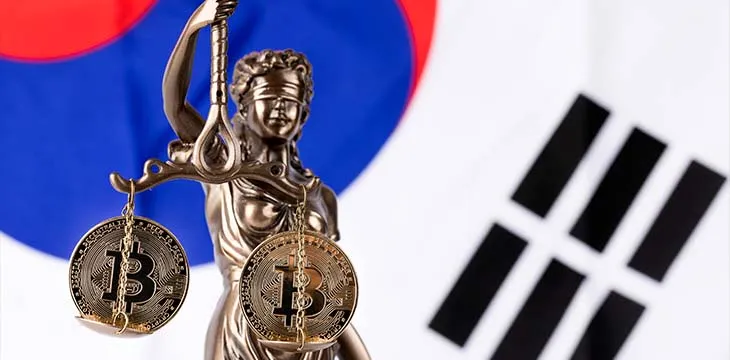|
Getting your Trinity Audio player ready...
|
The United States Securities and Exchange Commission (SEC) announced today it would formally pursue charges against Do Hyeong Kwon and the company he founded, Terraform Labs PTE Ltd.
The charges concern the “algorithmic stablecoin” Terra USD (UST), digital asset LUNA, and digital asset security token MIR, which the SEC said constitute “a multi-billion dollar crypto asset securities fraud.”
Kwon, a South Korean national, was based along with Terraform Labs in Singapore. Since the sudden collapse of the Terra/Luna trading system in May 2022, Kwon has reportedly been “on the run” from authorities from several jurisdictions and has been spotted in various countries. South Korea issued an arrest warrant for Kwon and five of his colleagues in September 2022, and Interpol issued a “red notice” shortly after, saying he was wanted in 195 countries.
Kwon has, at times, denied being in hiding and continued to post updates and engage with followers on social media throughout 2022. However, his last post on Twitter was on February 1, and his more recent engagements have tended to be brief/one-word responses:
!
— Do Kwon 🌕 (@stablekwon) January 9, 2023
The SEC issued a statement on Thursday accusing Kwon and Terraform of marketing “crypto asset securities” for profit, with repeated “false and misleading claims” the tokens would increase in value. They also allegedly marketed the UST stablecoin as “yield-bearing” and “paying as much as 20% interest through the Anchor Protocol.” They also falsely claimed that a Korean mobile payments app was settling transactions using the Terra blockchain, hoping to increase the value of the LUNA asset.
“From April 2018 until the scheme’s collapse in May 2022, Terraform and Kwon raised billions of dollars from investors by offering and selling an inter-connected suite of crypto asset securities, many in unregistered transactions. These included ‘mAssets,’ security-based swaps designed to pay returns by mirroring the price of stocks of U.S. companies, and Terra USD (UST), a crypto asset security referred to as an ‘algorithmic stablecoin’ that supposedly maintained its peg to the U.S. dollar by being interchangeable for another of the defendants’ crypto asset securities, LUNA. The complaint further alleges that Terraform and Kwon offered and sold investors other means to invest in their crypto empire, including the crypto asset security tokens MIR—or ‘mirror’ tokens—and LUNA itself.”
Kwon has retained a degree of support from social networks who have defended his actions and motives (though many of these may be Terra/LUNA bagholders desperately trying to salvage some value from their bags).
Kwon had called decentralized stablecoins “the most important innovation in crypto” and claimed more older-style stablecoins (digital assets with values pegged to fiat currencies backed by reserves of those currencies and/or other assets) were inherently untrustworthy by nature. As the SEC charges describe, Terra attempted to maintain a consistent value peg by algorithmic trading of other assets, particularly the LUNA token, which Terraform Labs created and managed.
What @Stablekwon tried to create was on its way to becoming a reality, but bad actors associated with fiat brought $LUNA down, @SBF_FTX using other people's funds. Do really had everyone's best interests at heart, and the OG's know this. I'll be backing him again.$ust #LUNC pic.twitter.com/rZnQSDpsZJ
— Chris ⚡️ (@Chris_CDC) January 30, 2023
Instead, SEC chair Gary Gensler said Kwon’s projects caused “devastating losses for investors” and added that the defendants had attempted to prevent authorities from obtaining crucial information about the business. LUNA value crashed in May 2022, causing TerraUSD/UST to decouple from its value peg. The resulting losses reached as much as $60 billion for asset holders.
Enforcement division Director Gurbir S. Grewal noted the agency “looks to the economic realities of an offering, not the labels put on it” (such as “DeFi”).
“As alleged in our complaint, the Terraform ecosystem was neither decentralized nor financed,” Grewal said. “It was simply a fraud propped up by a so-called algorithmic ‘stablecoin’—the price of which was controlled by the defendants, not any code.”
In December 2022, Kwon was reportedly “hiding out” in Serbia, which does not have an extradition treaty with South Korea. Even if he manages to escape the law in Korea and now the U.S., he also faces a series of lawsuits from disgruntled investors.
Watch: Law & Order Regulatory Compliance for Blockchain & Digital Assets

 07-02-2025
07-02-2025 





